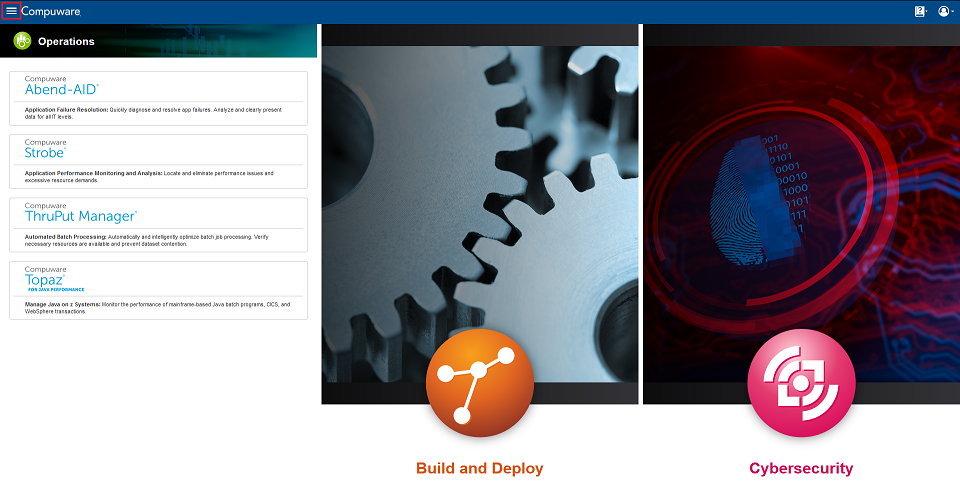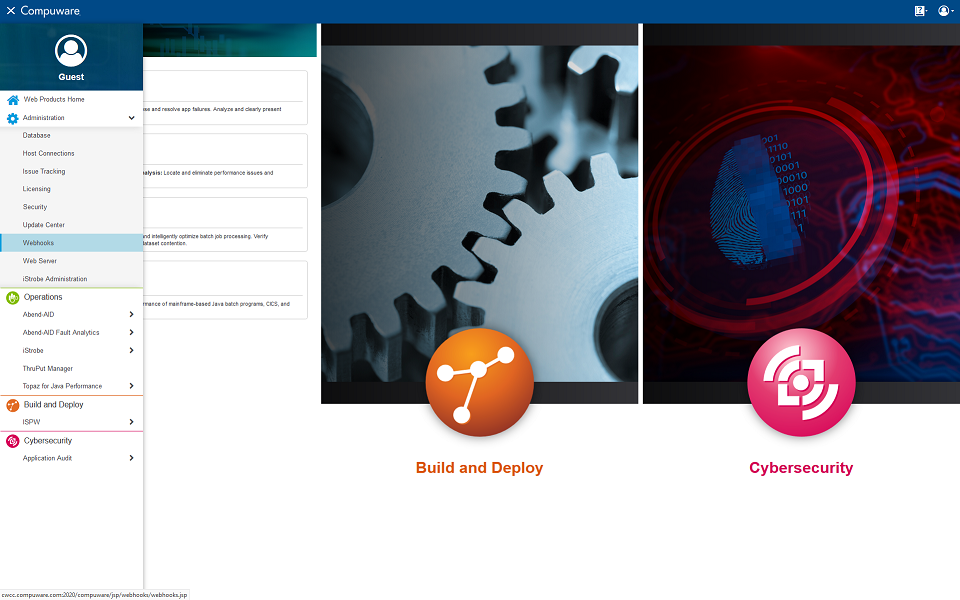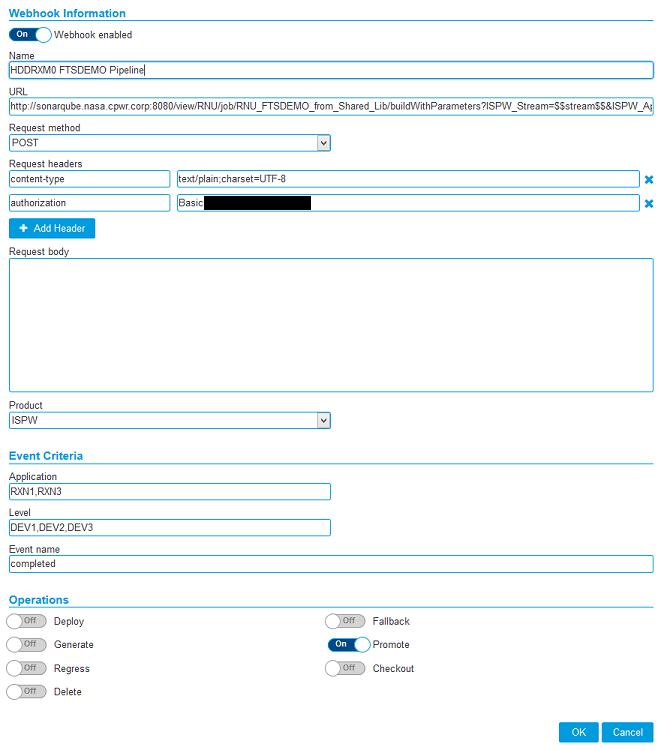Definition of a webhook used in the examples
To define and register an ISPW webhook in CES go to the CES Administration menu

and select Webhooks

On the Webhooks page select either add to define a new webhook or edit to modify an existing webhook. The Mainframe_CI_Pipeline_from_Shared_Lib.groovy makes use of the following definitions:
Webhook definition fields

Name
Name of the webhook, e.g. "FTSDEMO Pipeline"
URL
The URL to post the webhook's http request to. In the example pipeline this is:
http://sonarqube.nasa.cpwr.corp:8080/job/RNU_FTSDEMO_from_Shared_Lib/buildWithParameters?ISPW_Stream=$$stream$$&ISPW_Application=$$application$$&ISPW_Release=$$release$$&ISPW_Assignment=$$assignment$$&ISPW_Container=$$setID$$&ISPW_Container_Type=2&ISPW_Src_Level=$$level$$&ISPW_Owner=$$owner$$
where
sonarqube.nasa.cpwr.corp:8080is the name of Compuware's internal Jenkins serverRNU_FTSDEMO_from_Shared_Libis the name of the pipeline job to triggerbuildWithParametersis required since the pipeline job uses parameters
followed by a list of parameter=value pairs. In this list
- the part left of each
=names the parameter name from the pipeline definition - the part right of each
=is the value to pass to the parameter with$$<parameter-name>$$denoting parameter values passed from ISPW &separates two pairs
Request method
Will be POST.
Request headers
Depending on the configuration of the Jenkins server, you may need addition request headers. Especially if CSRF Protection (opens new window) is activated, then you will need an authorization header. Contact your Jenkins administrator for the required value.
Product
Will be ISPW.
Event Criteria
Define the ISPW events that will trigger this webhook.
Application
Specify the ISPW application(s) you want to use this webhook for. Roughly 50 entries are allowed.
The example uses applications RXN1 and RXN3.
Level
Specify the life cycle levels you want to use this webhook for. This is dependent on your specific configuration of ISPW.
The example uses levels DEV1, DEV2, DEV3, with the life cycle for the applications RXN1 and RXN3 looking like the following:

Event name
One or more events during the operation(s) that trigger the webhook. Events can be:
ApproveCompletedFailedTerminated
The example uses Completed.
Operations
One or more ISPW operations that will trigger the webhook.
The example uses Promote.
In summary
Which means in total, that the pipeline job RNU_FTSDEMO_from_Shared_Lib will get triggered whenever a developer has promoted code from levels DEV1, DEV2, or DEV3 within ISPW applications RXN1, or RXN2 and the promote was successfully completed. The following information will be passed from ISPW to the pipeline job:
- The ISPW stream name
$$stream$$will be passed to pipeline parameterISPW_Stream - The ISPW application name
$$application$$will be passed to the pipeline parameterISPW_Application - The ISPW release name
$$release$$will be passed to the pipeline parameterISPW_Release - The ISPW assignment name
$$assignment$$will be passed to the pipeline parameterISPW_Assignment - The ISPW set ID
$$setID$$will be passed to the pipeline parameterISPW_Container - The value
2will be passed to the pipeline parameterISPW_Container_Typeto denote a set ID was passed in the previous parameter - The ISPW source level
$$level$$(DEV1,DEV2, orDEV3) will be passed to the pipeline parameterISPW_Src_Level - The ISPW user executing the promotion
$$owner$$will be passed to the pipeline parameterISPW_Owner
